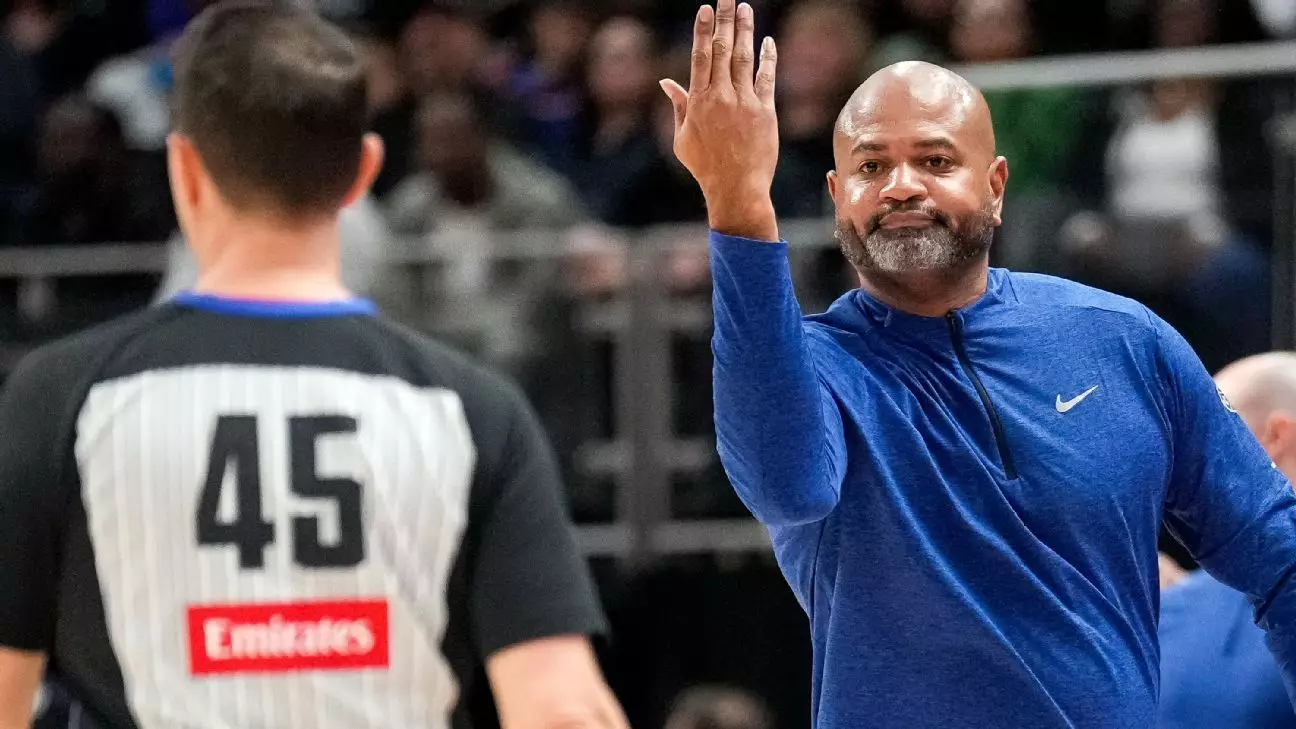In the high-stakes world of the NBA, where every second and every call can tip the scales of victory, the performance of officials is often scrutinized to an extreme degree. This was starkly evident in a recent clash between the Detroit Pistons and the Oklahoma City Thunder, a game marred by questionable officiating that left fans, players, and coaches alike grappling with disbelief. Coach J.B. Bickerstaff voiced his outrage after the Pistons suffered not just a loss, but also an appalling accumulation of five technical fouls in a single third-quarter stretch. Such occurrences raise significant questions about the integrity and consistency of officiating in professional basketball.
The Tempestuous Third Quarter
The third quarter was a whirlwind of chaos, encapsulated by the early ejection of star player Cade Cunningham, who was penalized for arguing with officials. His frustration, while relatable, speaks volumes about the broader issue of communication between players and referees. When a player feels the need to address a call so forcefully that it results in a technical foul, it signifies a breakdown in understanding that warrants attention. Bickerstaff’s passionate outcry emphasized this sentiment, as he demanded a higher standard for officiating, arguing that the level of disrespect shown to players is simply unacceptable. No game should be overshadowed by an officiating blunder that prompts two technical fouls in just 48 seconds—a glaring indictment of the officiating crew’s decision-making process.
The Ripple Effect of Poor Officiating
What’s particularly alarming is the knock-on effect that errant officiating can have, not just on the game at hand but on the league itself. Referees hold immense power over the flow of a match, and when they engage in poor judgment, it damages the competitive nature of the sport. The crew chief Brian Forte’s justifications for the technical fouls cast a shadow of inconsistency over how these situations are handled in-game. For Cunningham to receive his first technical for “disrespectfully addressing” an official is one thing, but to issue a second one soon after for continuing the dialogue only amplifies a sense of ambiguity surrounding the parameters of acceptable player behavior.
Coaches and Players Demand Better
Oklahoma City Thunder’s coach Mark Daigneault offered a different perspective, indicating that his team had prepared for the officiating crew known for their leniency. This speaks to the strategic elements of NBA games, where preparation extends beyond just physical skills; teams must also mentally equip themselves to navigate the varying officiating styles. Daigneault’s comments illuminate the fact that teams often operate under the looming specter of inconsistent officiating, adjusting their gameplay not just to their opponents but also to the unpredictable variables presented by refereeing.
While it is imperative to maintain respect for the officials, it must also be recognized that they are not above scrutiny. Referees should be held accountable for their decisions, as these influences ripple through the fabric of competition. The energy and passion displayed by coaches like Bickerstaff are necessary catalysts for pushing the discourse surrounding officiating. At the heart of the matter is a need to ensure that the integrity of the game remains intact, where players and coaches feel they are battling not just against each other but also against a fair and just officiating system. We must advocate for an ecosystem within the NBA that prioritizes respect, communication, and accountability from all parties involved.


Napsat komentář